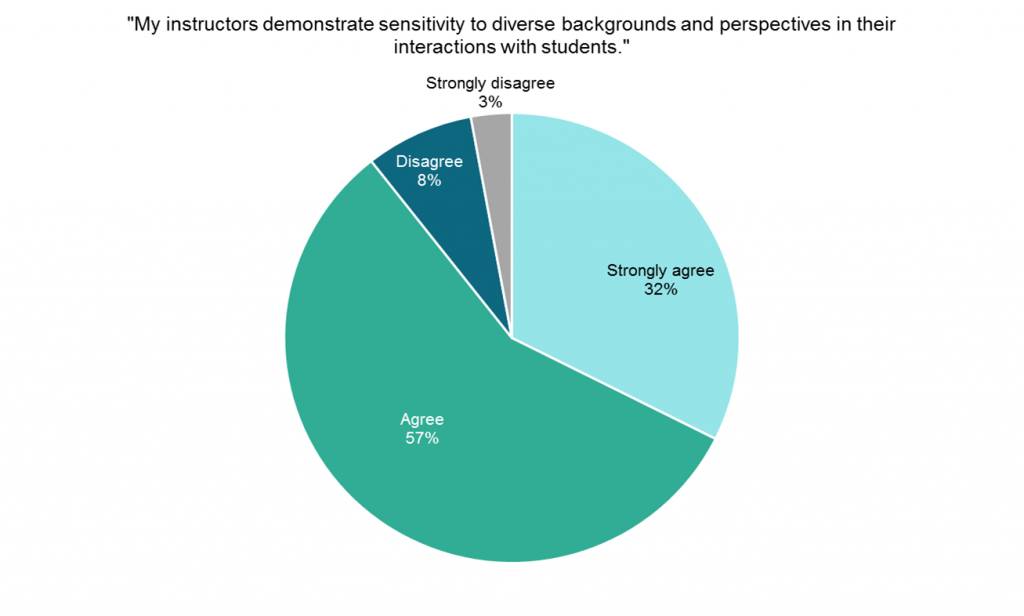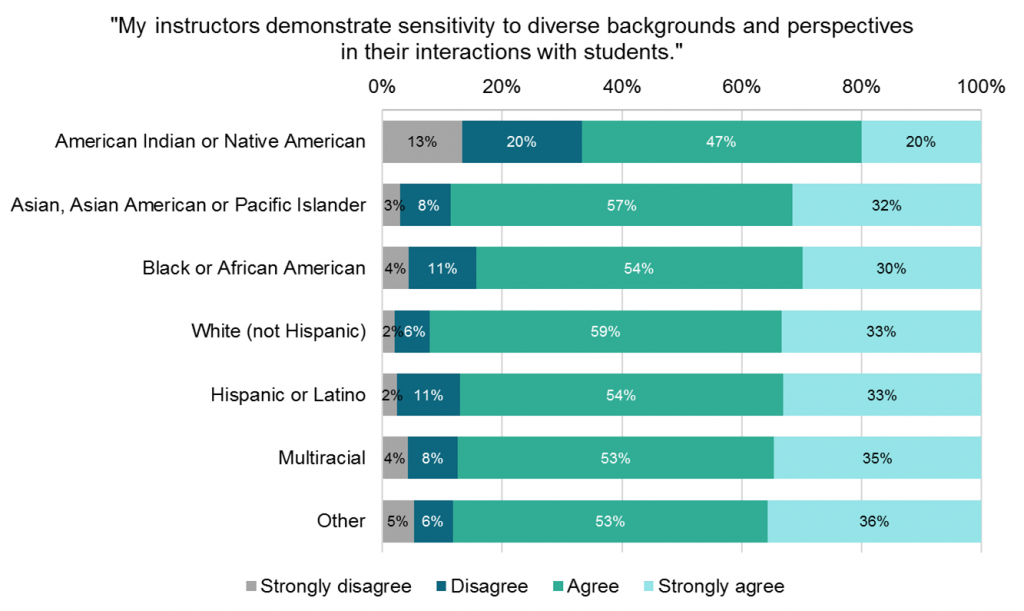The Law Student Survey of Student Engagement (LSSSE) asks students about the quality of their relationships and interactions with law school faculty as a way of measuring whether students feel valued by others and engaged with the law school experience. As a group, law students tend to have positive perceptions of their instructors. In 2018, 76% of the 17,928 U.S. law students who responded to LSSSE rated their relationships with faculty as at least a “five” on a seven-point scale, where “one” was the perception of faculty as “unavailable, unhelpful, and unsympathetic” and “seven” was the perception of faculty as “available, helpful, and sympathetic.” Male and female students were pleased with their instructors at equal rates, although students of other gender identities were somewhat less satisfied, with only 61% rating their relationships with faculty a “five” or higher.
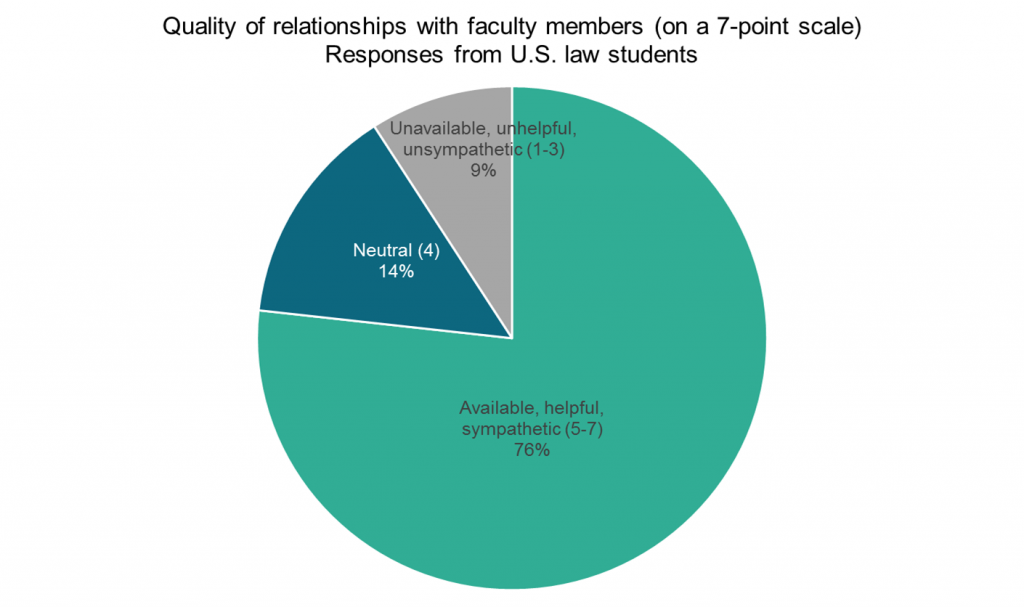
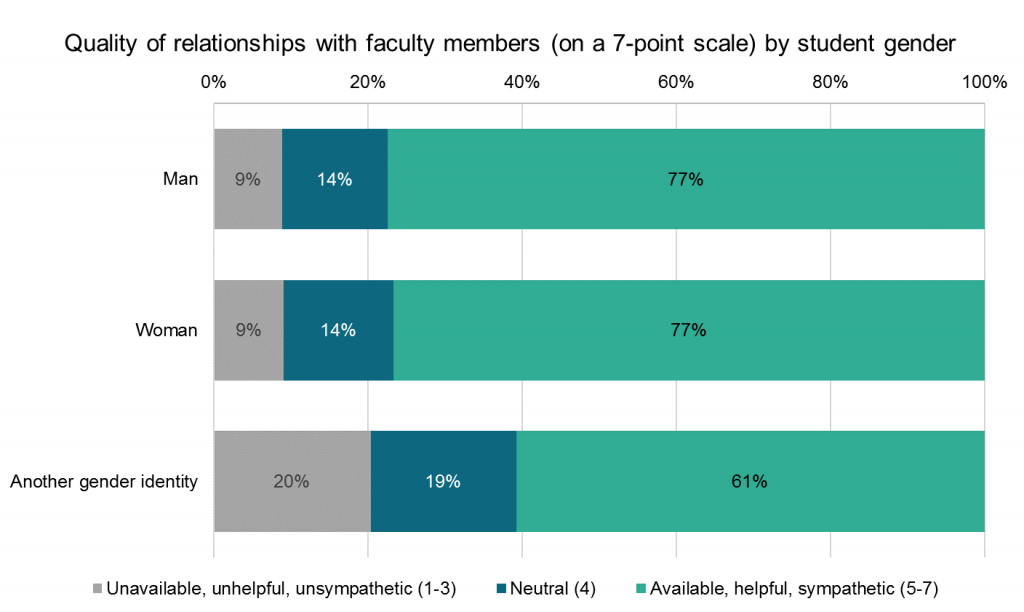
In 2018, a subset of 7,718 LSSSE respondents received the popular Learning Experiences and Professionalism (LEAP) module, which dives more deeply into students’ perceptions of both the law school community and their own readiness for legal practice. The vast majority of law school students (93%) agree or strongly agree that their instructors “care about my learning and success in law school.” Students in their first year of law school are most likely to strongly agree with this statement (44%), but overall there is not an appreciable drop in students’ sense that their instructors care about their law school experience across class years. Only 6-9% of students in any year of law school disagree or strongly disagree that their instructors care about them.
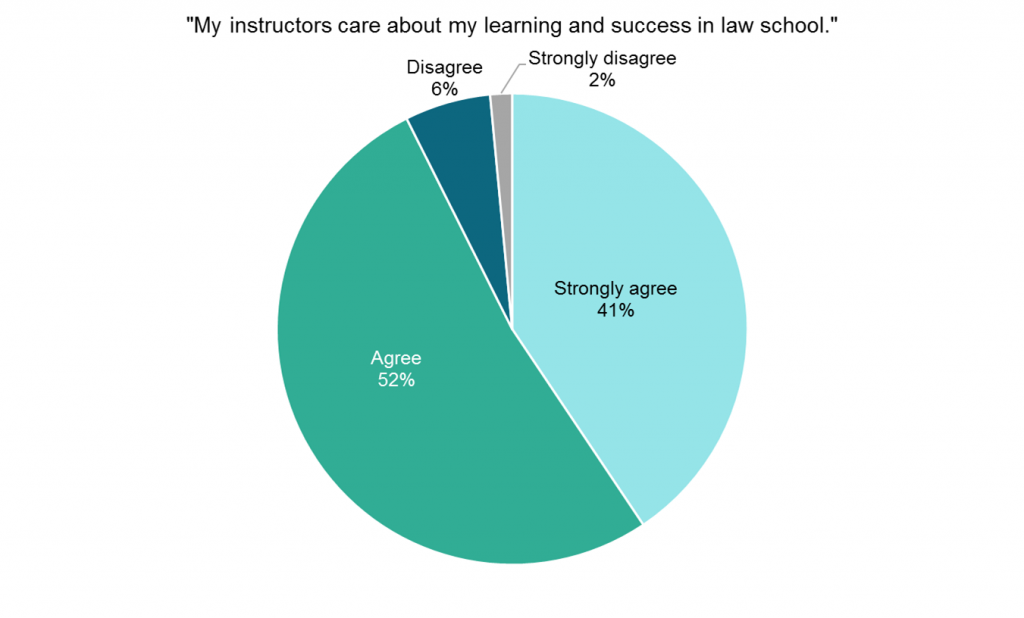
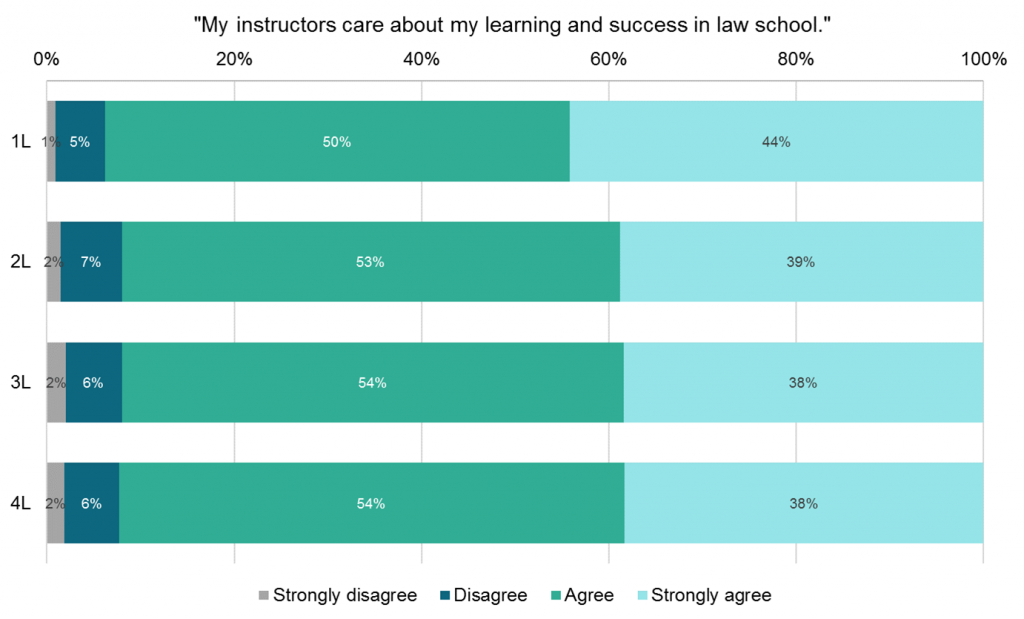
The LEAP module also asks whether student believe that their “instructors demonstrate sensitivity to diverse backgrounds and perspectives in their interactions with students.” Among U.S. law students surveyed in 2018, 89% of students agree or strongly agree with this statement. There is some variation among students of different racial groups: 92% of white students agree or strongly agree that their instructors are sensitive to issues of diversity while only 67% of American Indian or Native American students share this viewpoint. This suggests that disparities still exist, particularly in how students of color perceive faculty attitudes toward diversity and how students from varying backgrounds are treated in the classroom.
